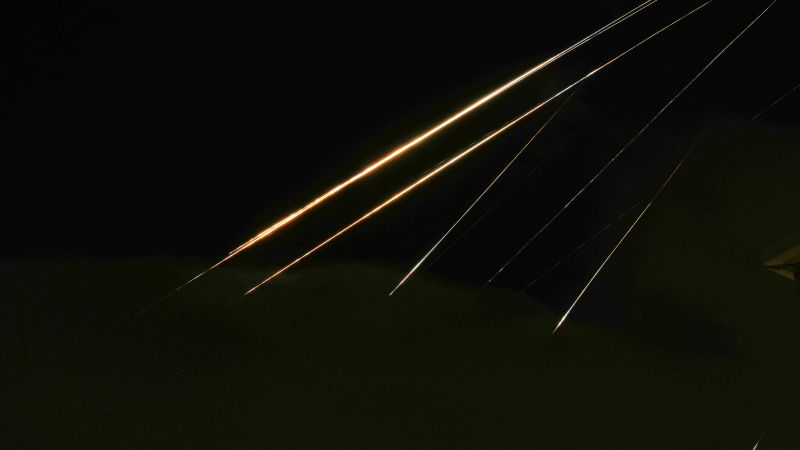What Happened
In mid-June 2025, tensions between Iran and Israel escalated dramatically, culminating in a series of missile strikes exchanged between the two nations. The conflict began with Israeli airstrikes targeting Iranian military and nuclear facilities, including significant strikes on the Isfahan nuclear site and the Fordow facility, which is known for uranium enrichment. The Israeli military claimed these operations aimed to neutralize perceived threats from Iran’s nuclear program and military capabilities. In response, Iran launched a barrage of missiles and drones targeting Israeli cities, resulting in casualties on both sides.
The exchanges of fire have led to significant civilian and military casualties, with reports indicating at least 80 deaths in Iran, including military personnel, and several fatalities in Israel due to Iranian missile strikes. The situation has prompted widespread international concern, with calls for restraint and renewed diplomatic efforts to address the underlying issues, particularly regarding Iran’s nuclear ambitions.
Key Details
- Date of Events: The conflict escalated notably on June 14, 2025, following a series of strikes that began on June 13.
- Casualties: Reports indicate at least 80 people killed in Iran and over 320 injured, primarily civilians. In Israel, at least three fatalities and numerous injuries were reported due to Iranian missile attacks.
- Targets: Israeli strikes focused on military and nuclear facilities, including the Isfahan nuclear site and the Fordow facility, which is critical for uranium enrichment. Iranian retaliation involved missile and drone strikes aimed at Israeli cities, including Haifa and the Galilee region.
- International Reactions: The United States and other global leaders expressed concern over the escalating violence, with calls for renewed diplomatic negotiations. The scheduled U.S.-Iran nuclear talks in Oman were canceled amid the ongoing hostilities.
Multiple Perspectives
The Israeli government, led by Prime Minister Benjamin Netanyahu, has framed its military actions as necessary for national security, asserting that the strikes were aimed at preventing Iran from developing nuclear weapons. Netanyahu stated that Israel would continue to target Iranian military infrastructure to eliminate perceived threats.
Conversely, Iranian officials have condemned the Israeli strikes as acts of aggression, asserting that they are retaliating against what they describe as “barbarous” attacks. Iranian leaders have emphasized the civilian toll of the strikes, highlighting the deaths of women and children among the casualties.
Analysts have noted a growing skepticism among the Israeli public regarding the effectiveness of military action against Iran. Some citizens express doubts about whether such strikes will achieve long-term security or simply exacerbate the conflict. On the Iranian side, there are concerns about the potential for further escalation and the impact on the country’s already struggling economy.
Context & Background
The Fordow nuclear facility, located near Qom, Iran, has been a focal point of international scrutiny due to its role in uranium enrichment. The facility is built into a mountain, making it more resistant to airstrikes, which has raised concerns about its security and the potential for Iran to develop nuclear weapons capabilities. The ongoing conflict between Iran and Israel is rooted in decades of geopolitical tensions, particularly regarding Iran’s nuclear program and its support for militant groups in the region.
The recent escalation comes against the backdrop of failed diplomatic negotiations aimed at curbing Iran’s nuclear ambitions, which have been a point of contention since the U.S. withdrawal from the Joint Comprehensive Plan of Action (JCPOA) in 2018. The cancellation of the latest round of U.S.-Iran talks in Oman further complicates the situation, as both sides appear entrenched in their positions.
What We Don’t Know Yet
Several uncertainties remain regarding the ongoing conflict. The full extent of the damage to the Fordow facility and other targeted sites has not been independently verified, and the Iranian government has been reticent to provide detailed information about the impact of the strikes. Additionally, the long-term implications of the current military exchanges on regional stability and the potential for a broader conflict are unclear.
The international community’s response and any potential diplomatic initiatives to de-escalate tensions have yet to materialize, leaving open questions about the future of U.S.-Iran relations and the prospects for renewed negotiations regarding Iran’s nuclear program. As the situation evolves, further developments may shed light on the strategic calculations of both Iran and Israel, as well as the responses from global powers concerned about the conflict’s implications for regional security.


